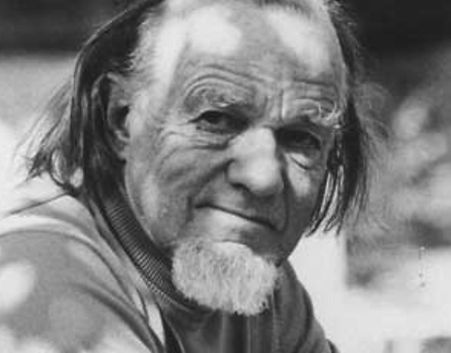Francis Schaeffer

Francis August Schaeffer (January 30, 1912 – May 15, 1984) was a key figure in the Protestant Evangelical Christian movement of the twentieth century. He met and married Edith Seville, the daughter of missionaries to China while attending Hampden–Sydney College in Virginia. He then enrolled at seminary and became member of the Bible Presbyterian church, serving as pastor for several small churches in Pennsylvania and Missouri.
In 1948 the Schaeffers moved to Switzerland as missionaries following the end of WWII, to minister to churches struggling against existentialism and theological liberalism. They opened up their home to those seeking answers
to life's difficult questions. This spiritual-philosophy community attracted thousands of traveling young people, and Schaeffer's teachings pioneered conservative evangelicalism. “It was called 'L'Abri', the French word for 'shelter,' because they sought to provide a shelter from the pressures of a relentlessly secular 20th century. As time went by, so many people came that others were called to join the Schaeffers in their work, and more branches of L'Abri were established.” (labri.org)
Francis wrote 22 books dealing with philosophy, culture, Biblical Truth, spirituality, the Church, and Western Civilization. His book How Should We Then Live? was made into an historical documentary film series that addressed the clash between the Protestant Reformation and the Renaissance, Enlightenment, and Darwinism. Schaeffer is also known as one of the catalysts of the evangelical Pro-Life movement.
"The Father of Protestant Evangelical Worldview Thinking"
I spent hours and hours reading and then re-reading the Complete Works of Francis Schaeffer looking for every observation and comment he made regarding education or learning. I was searching for principles which I could incorporate into our own teaching and also Cornerstone Curriculum. The following are some of those principles:
1 - Christianity has something to say about every subject
2 - Natural associations exist among the various disciplines
3 - These associations are founded in the Infinite-Personal Creator God
4a - The Bible gives the framework for total truth
4b - In each step of the learning process students will understand what is true and what is false and why it is true or false
4c - The Biblical world view gives students the only basis for knowing what is truth and what is untruth
5 - Students must learn how to learn on their own
6 - Learning never stops - it is continuous throughout all life
7 - The curriculum must be full and rich - touching on all subjects of thought.







